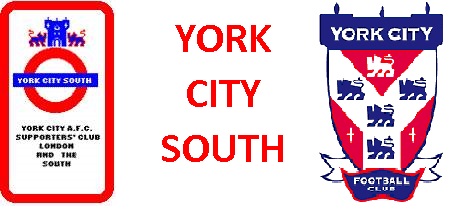

Alan Little
After 11 years, the end came rather suddenly, announced by the Chairman, Douglas Craig, at a fans forum in March 1999. Alan Little was out, sacked as we flirted with relegation back into the basement division. He had arrived at York in 1988 as coach in a package deal when John Bird arrived from Hartlepool. He retained his coaching role when Bird was sacked and was replaced by John Ward.
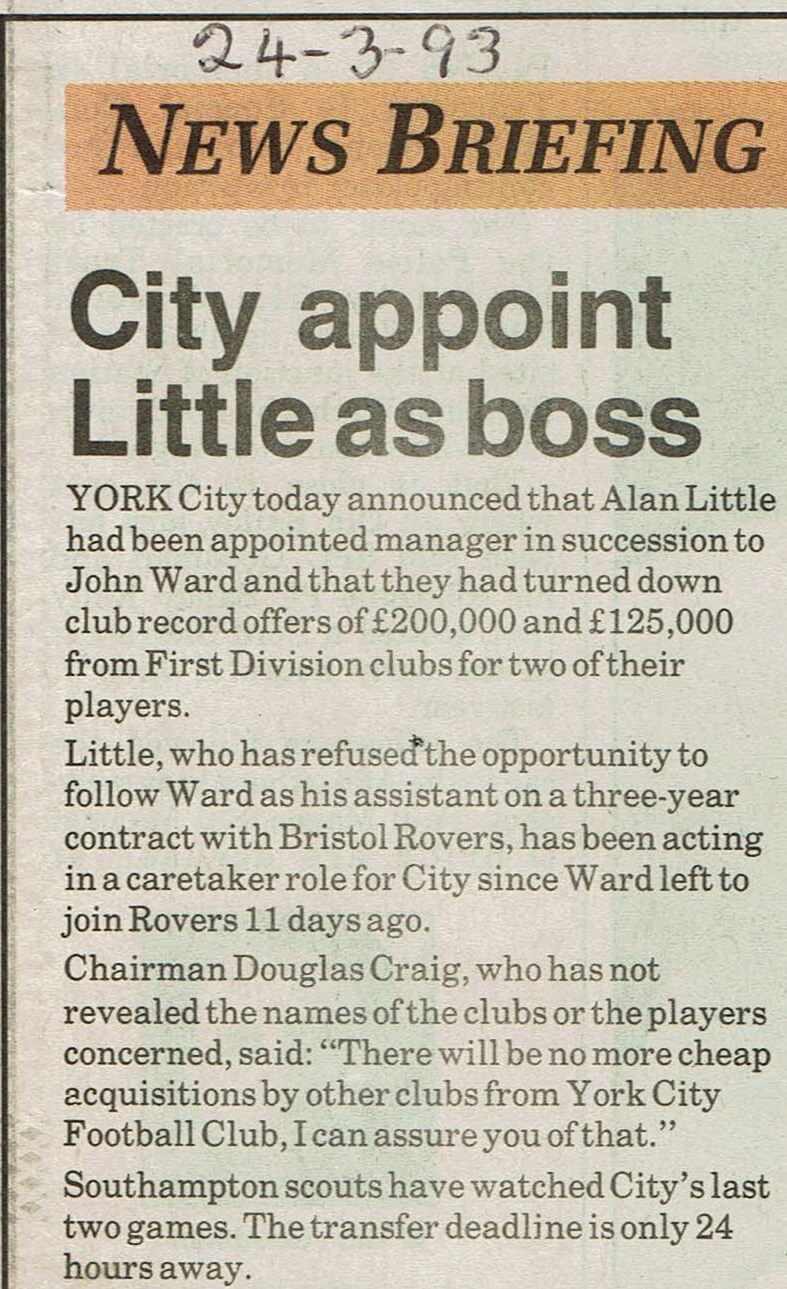
When John Ward went to Bristol Rovers in March 1993, Alan was promoted to manager. His reign kicked off with a 5-1 away win against promotion rivals Barnet. Could it get any better?
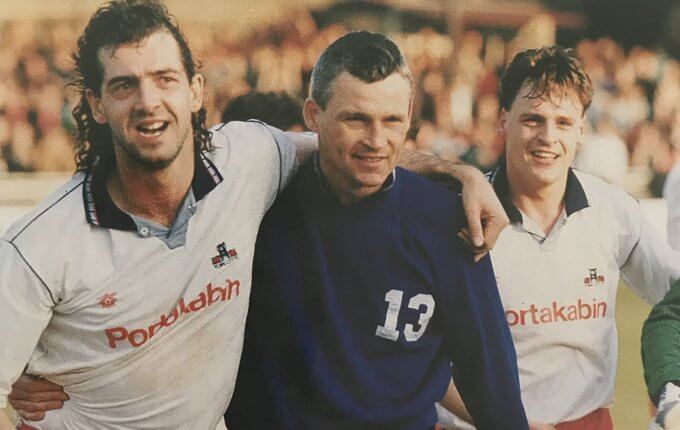
The side had been experiencing a mini slump that had seen us go from 7 points clear in November to 4th position. He maintained that position and took us into the play offs, victory over Bury before a penalty shoot out final win over Crewe in May. 1-0 to Alan Little. Wearing a suit to lead City out onto the Wembley turf, he quickly changed into "match gear", a tracksuit for the game. Our first ever Wembley trip (Ed: Many of the team have one regret re Wembley, Nigel Pepper and Tony Canham took extensive video footage of the day, unfortunately it was believed lost, however, on Hospital Ball, Tony Canham said he still had the player's behind the scenes Wembley video at home). It subsequently turned up and was made public.
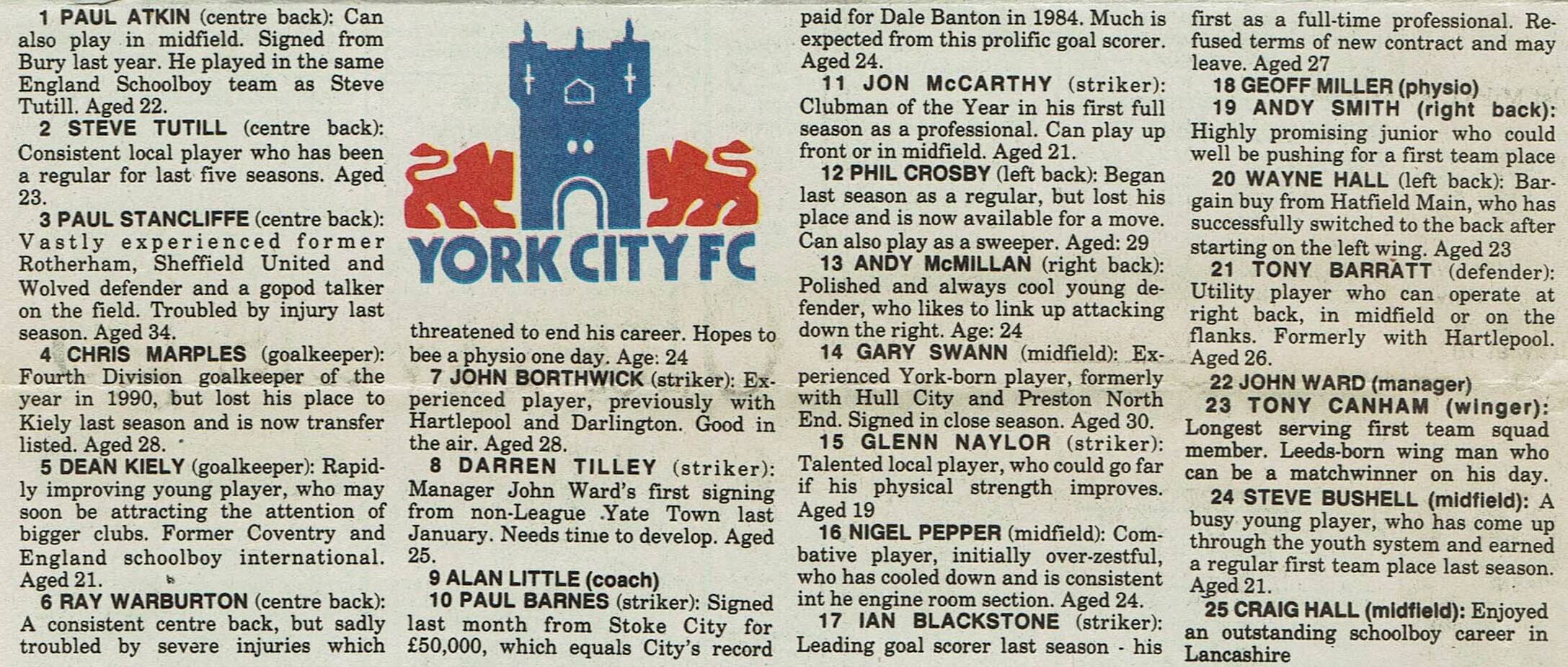
That season, Paul Barnes' goal scoring prowess was immediately evident. With Jon McCarthy and Tony Canham providing the service, Barnes went onto score 21 goals, including 4 against Scunthorpe and 3 at Barnet. A dire December and January, one win in 10 games had seen us drop out of the automatic promotion places. City clawed their way into the play offs and beat Bury 1-0 on aggregate in the semi final, courtesy of Swann’s first goal for the club to earn City our first ever Wembley visit. He repeated the trick at Wembley as we drew 1-1 with Crewe and prevailed 5-3 in the penalty shoot out. In hindsight, it’s easy to argue that this is one of our strongest ever side. Dean Kiely, Paul Barnes and Jon McCarthy all went onto have decent careers at a higher level, 2 winning full international honours.
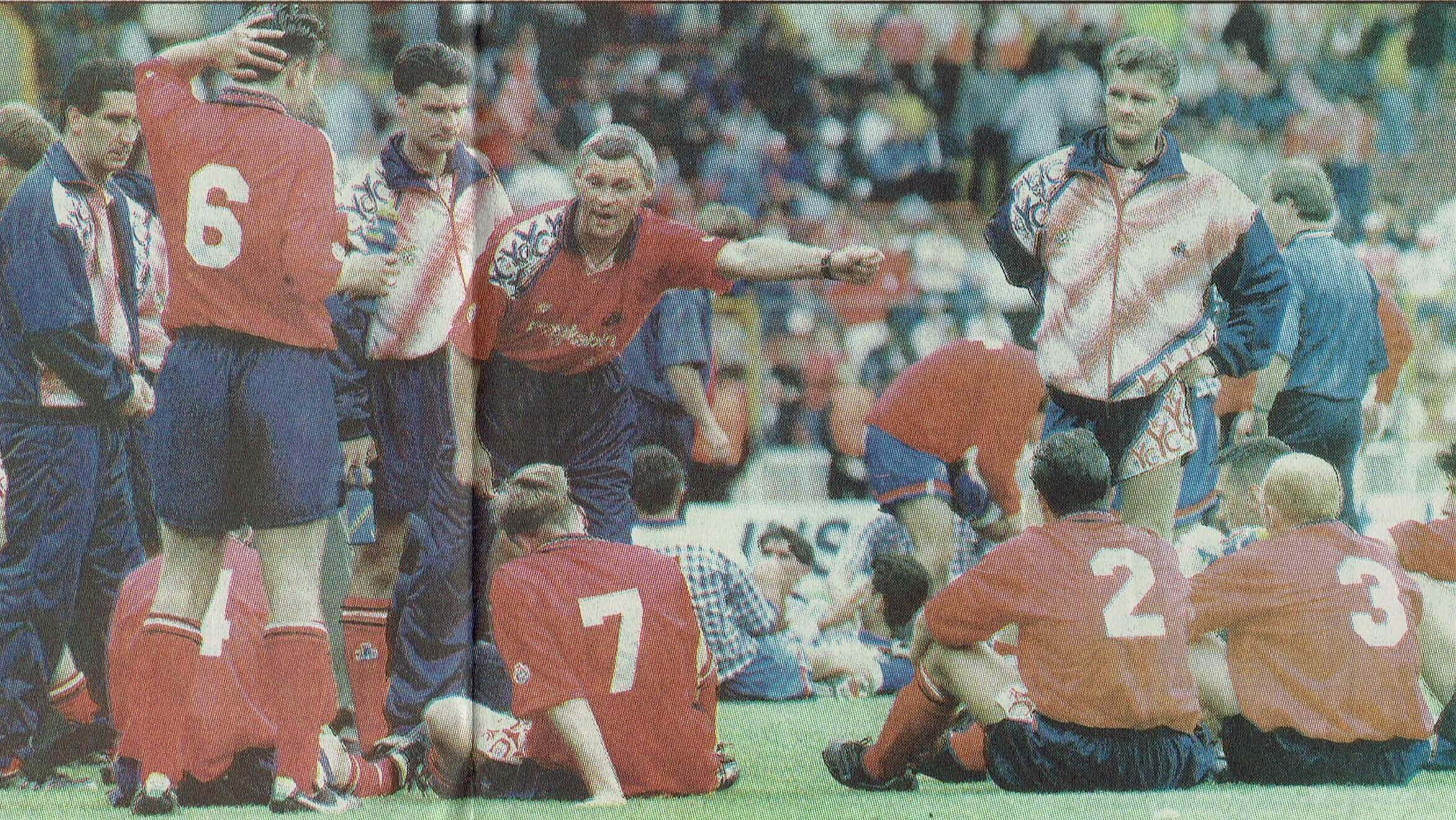
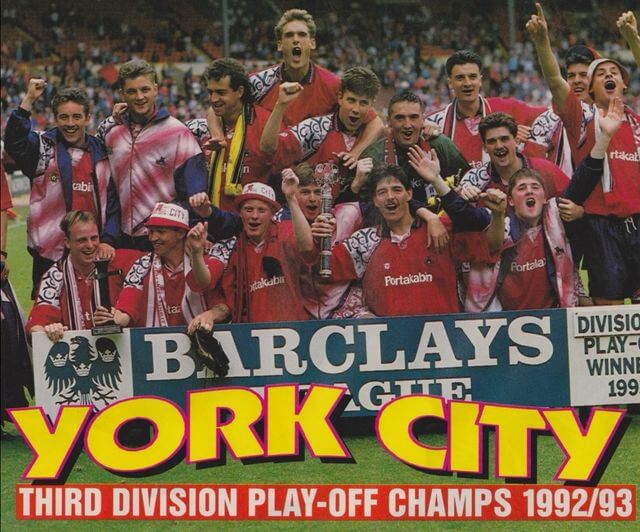
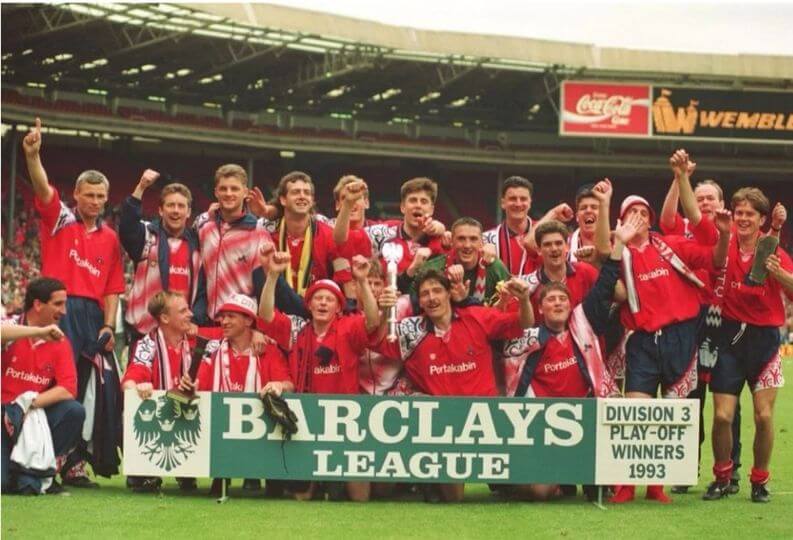
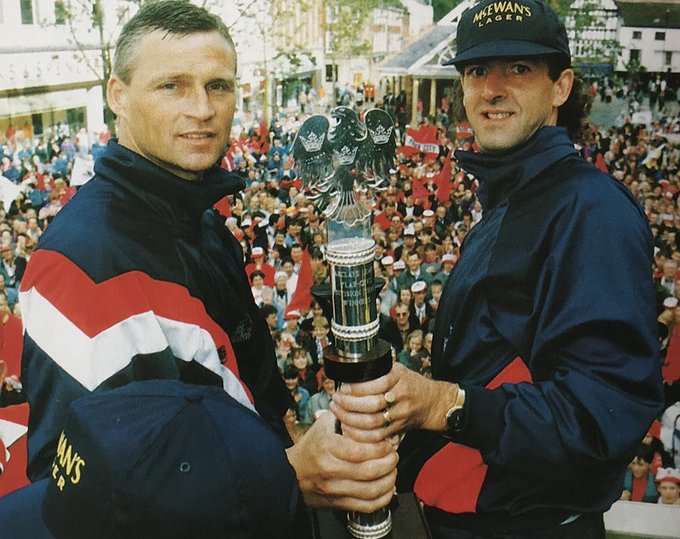
No one gave the side much of a chance in Division 2 (tier 3) the following season, but we again reached the play offs, losing to Stockport in the semi finals (Stockport's keeper earning a 10 out 10 match rating at Bootham Crescent). Years later, chairman Douglas Craig stated that one of his regrets was that that side stayed together too long when reinforcements were needed. The next campaign (1994-5) saw us in mid table, the play offs always just tantalisingly out of reach. That season probably marked the first "Little Out" chants. Despite memorable League Cup (Coca Cola Cup) wins over Manchester United (1995) and Everton (1996), the 4 seasons 1995-99 saw us flirting dangerously close to relegation back to Division 3.
Alan was sacked in March 1999 and we were back in Division 3 within 2 months. With a week of the season left, City were 5 points clear off relegation. It took 2 defeats for us and 2 wins for both Wycombe and Oldham to see us drop into the relegation places, for the only time during the season, with just 15 minutes of the season left to play.
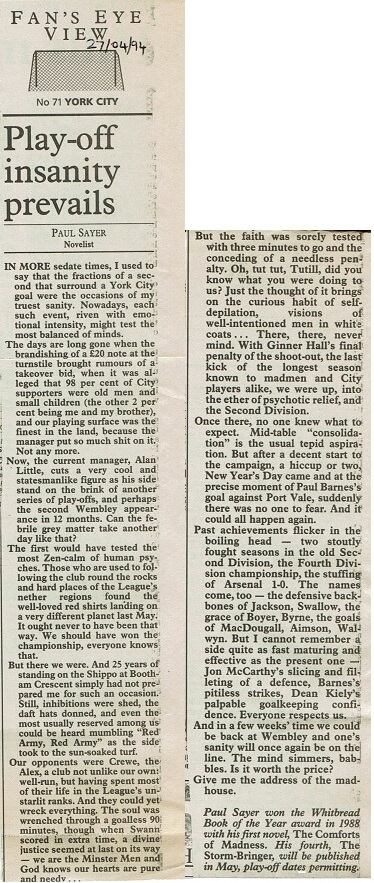
It was 6 years since we had been promoted, we have never spent longer outside the bottom flight. 2-0 to Alan.
Arguments had raged for years as to whether it should be "Little Out" or "Craig Out". Little appeared happy to go along with the Chairman’s wishes and the Chairman appeared happy with a compliant manager.
The main bone of contention between club and fans being our transfer policy. Always a net seller of players with a large surplus on transfer dealings, there were repeated "spend some money" cries. Fans were divided as to whether Little or Craig should take the blame for City’s predicaments.
Under Little, the outgoing record went from £125,000 to £350,000 (Paul Barnes) to £450,000 (Jon McCarthy) and up to £750,000 (Graeme Murty). A fortnight after Little went, Cresswell was sold for £950,000. Jon Greening also moved to Manchester United, with add ons, that transfer eventually netted City over £1.1m. The record fee paid increased from £50,000 to £140,000.
Unfortunately, many of his "big" money signings cannot be judged as successful. Little spent almost a year chasing Rob Matthews (£85,000) and then sold him 4 months later when he couldn’t decide where best to play him. Adrian Randall (£125,000) came and went within 18 months amid various rumours of travel and drink problems. Admittedly both went to a bigger club (if you call Bury a bigger club) at a small profit. David Rush didn’t. We wrote off his £80,000 purchase within 6 months when he was sacked amid rumours of drugs. 2-1.
Little recalls that the "big signings didn't fit into our environment", that they "didn't play in the style I expected them to play in" noting Rob Matthews was a “flair player”, replacing the “consistent“ Tony Canham in a team with a strong work ethic.
On the other side, we’ve operated a successful youth policy. The sales of Cresswell, Greening and Murty being the most rewarding financially. In 1999, Peter Taylor was able to play 4 (Greening, Cresswell, Howarth and Williams) York produced players in his successful England Under 21 side. 3-1.
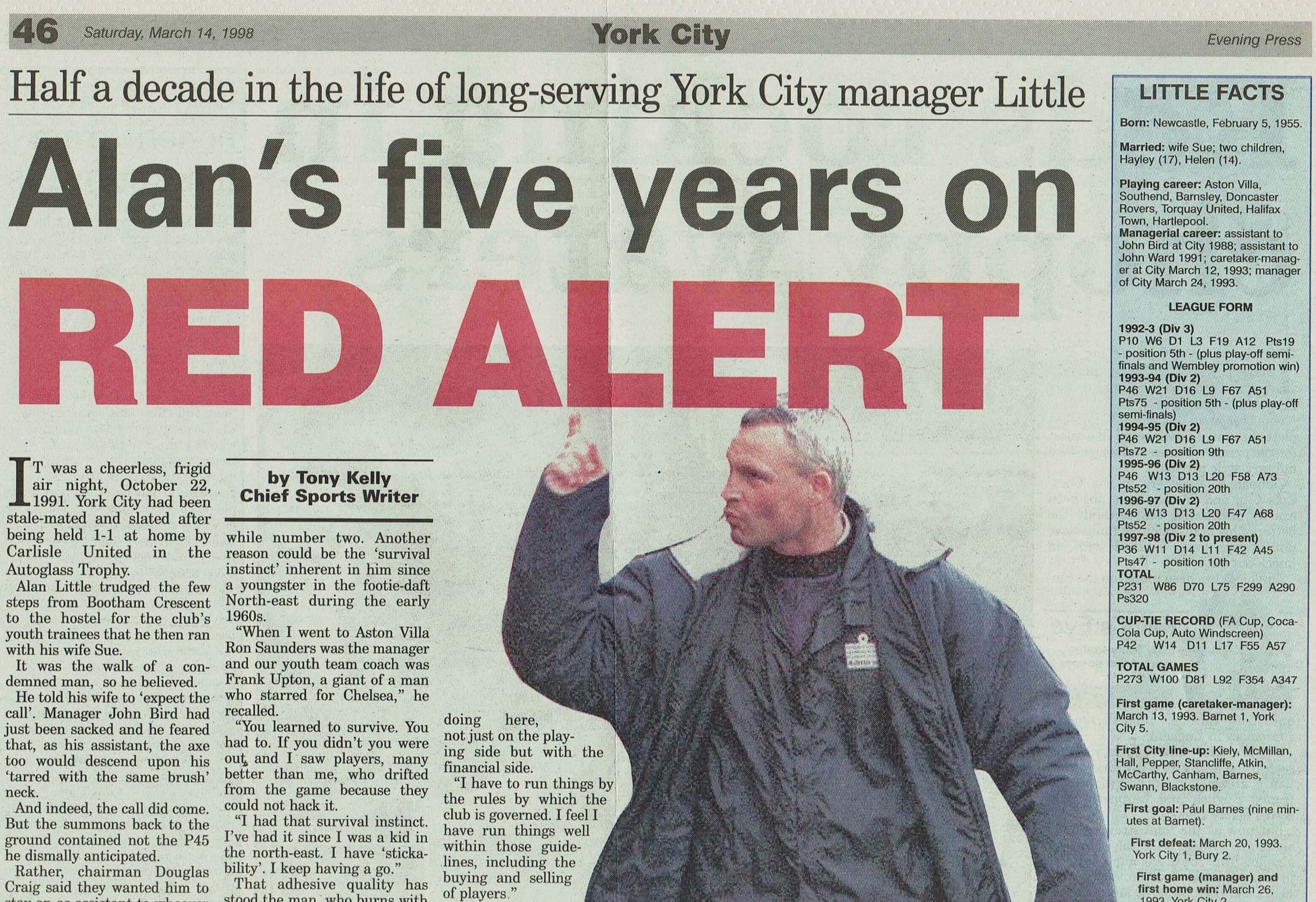
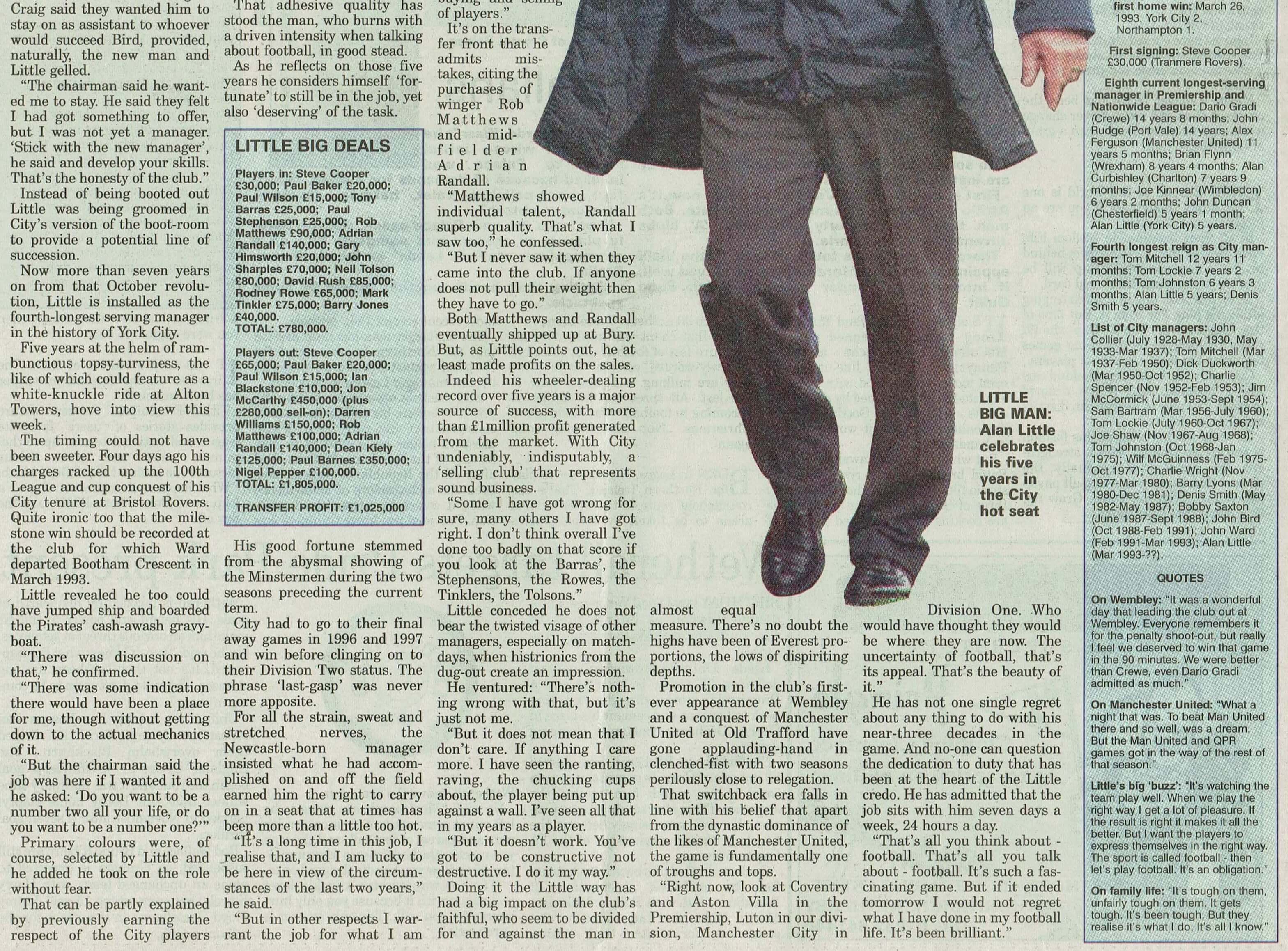
Unfortunately, despite the young players coming through, we didn’t see enough establish themselves in the first team to propel us upwards and onwards. The gap between youth and first team football was as big as ever at York. We reached the last 8 of the FA Youth Cup in 1994 and last 16 in 1999. 3-2.
The fortunes of 2 youngsters is illustrative. In 1995 we went to Old Trafford and won 3-0 in The Coca Cola Cup. In midfield, teenagers Scott Jordan and Darren Williams shone brightly in both legs. Big things were predicted for both. Williams found himself dropped a few months after. He was languishing in the reserves when his former youth coach, Ricky Sbragia, took him to Sunderland where he made his Premiership debut within 2 months and went onto win Under 21 and B international caps. Scott Jordan eventually left City for Scarborough, always an inconsistent performer.
That said, under Little, City brought through more youth players than any other City manager (Ricky Sbragia's role shouldn't be under estimated) and he usually got the most out of his players, many players he signed struggled to reach the same standards after they left City and Alan Little.
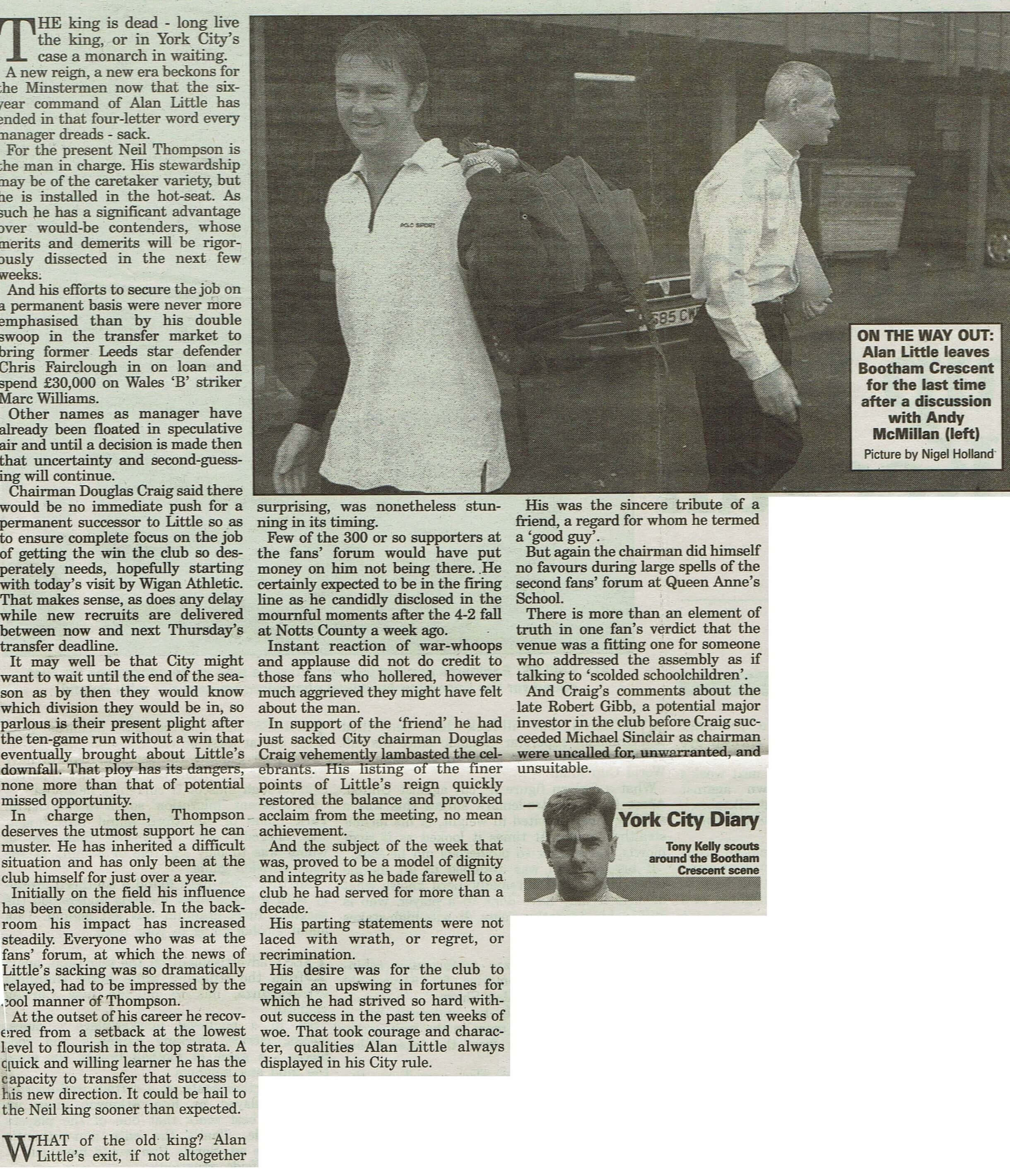
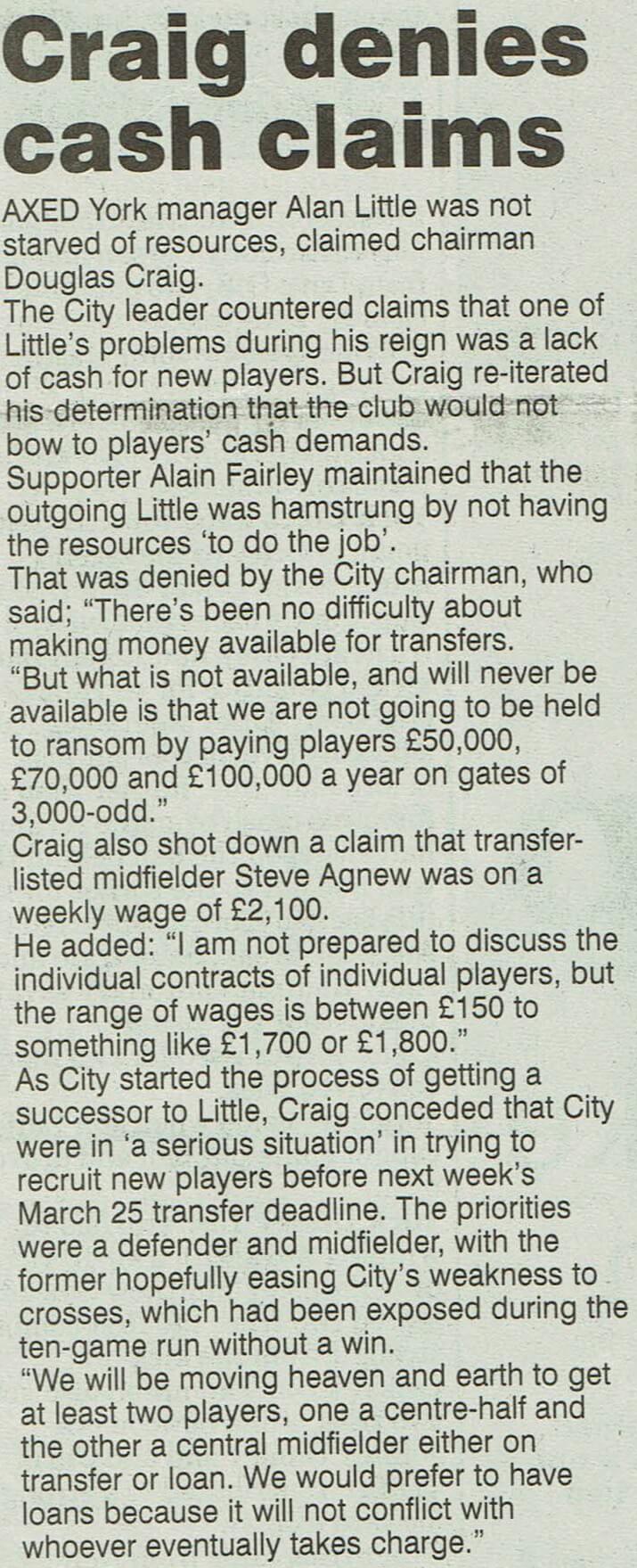
Even in that era, his 6 years as manager was much longer than was the norm of the time, on the pitch success and the sales will have helped, but so did his demeanour, "respectful authoritative" as Rodney Rowe (Y Front fanzine #10) later described his style.
From the outside, motivation of the players seems to have become an issue in Little's latter years. From the terraces, it was hard to see a discernible style of play. On Little’s departure, the Chairman mentioned the word "stale" and certainly set piece play had become almost non existent. I’ve always believed managers had a shelf life, both in the ability to motivate the team and themselves, Alan had probably reached his expiry date. 3-3. Read Garry Beckett's excellent "York City Memoirs" and the likes of Paul Barnes, Jon McCarthy, Andy McMillan and Tony Canham all speak very highly of Alan. 20 years later, 2020 and those players were still expressing the same views. Neil Tolson described him as "the best manager I ever worked with". Whilst many ex City managers have former players who are pro and anti, with Alan Little, I don't think I've heard anyone anything negative about him, most rate him as one of the better managers they played under during their careers.
Top manager, top bloke.
Certainly, the players were capable. Witness the youngsters going onto the England Under 21 side. We had our success on the big occasion, winning at Wembley and Coca Cola wins over Manchester United and Everton. 4-3. But remember, those wins were followed by next round defeats at QPR and Leicester.
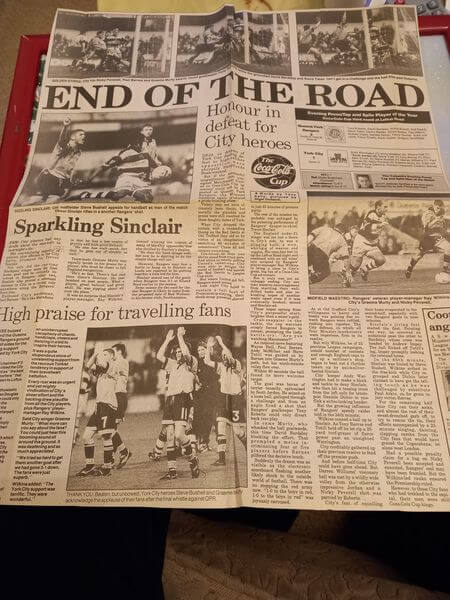
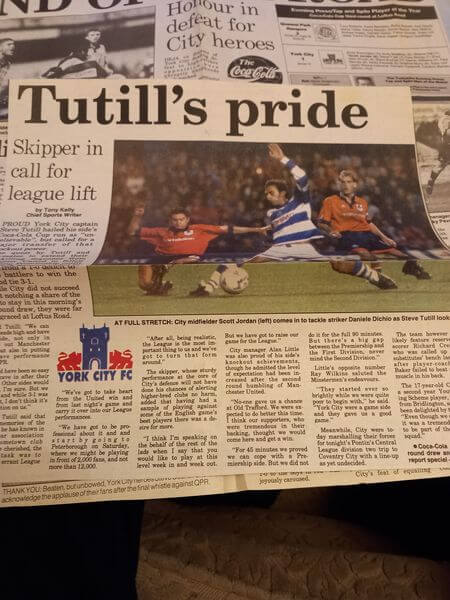
One of Little’s foibles was his perseverance with certain players. Young keeper Andy Warrington made 76 appearances despite being regularly dropped and new keepers coming in. Several large clangers were dropped and despite spells back in the reserves, he would eventually get a recall. He was released on a free transfer in May 1999. I’m a little (sorry, no pun intended) surprised Alan didn’t pick him up. Versatile Paddy Atkinson was another player who stayed longer with City than many thought he should. 4-4
Little was sacked by City on 15th March 1999 as City were dropping towards the relegation zone. The end came face to face, in the board room during a board meeting.
During his time with City, he changed the role of the manager as the club grew. As his own workload increased, he had passed onto the board the responsibility for negotiating transfer fees and players’ wages.
After leaving City, Alan was appointed manager at Southend, one of his former clubs. He came back to York to sign Martin Carruthers, Gordon Connelly, Neil Tolson and Mark Tinkler. We dropped £20,000 on Connelly in 10 months, another player who lost his way at York after a hugely promising start. An old fashioned winger with a shot and eye for goal. Tolson had 3 years at York, a cultured striker, he was good in the air and able to hold the ball up. Top scorer in his first season (17 goals), injury prone in the others, his temperament let him down on several occasions.
Unfortunately, neither Southend, nor a spell as manager at Halifax, another of his former clubs worked out. At Halifax he was sacked when in hospital recovering from an operation to remove his appendix. Neither spell could be considered a success. In between, he worked for his brother Brian at Hull.
Alan Little was always approachable. In 1997, a member of the newly formed London branch of the York City Supporters Club spoke to Alan before an away game asking for a set of kit for the branch football team. A few days later, Alan was on the phone to say the kit was ready for collection. A few months later, Alan turned up before 9am on a Sunday morning to open the Club’s out of town training centre for the London Branch’s game with Fulham and stayed on to coach the side to a 9-1 win. 5-4 to Alan.
His popularity was confirmed when in August 1998, 6,358 turned out to watch his City side play Paul Gascoigne's Middlesbrough in his testimonial game. His combative nature was shown when he made a late appearance as sub, something he'd also done in City's 1990 pre season friendly against the Bermudean national side.
It was obvious from Alan Little’s record at York that another club would soon come in for him. After his departure, we struggled, a gradual downward spiral into The Conference.
His love of City extended to naming a family pet dog "Barney", after Paul Barnes.
Alan Little - A pictorial tribute (with thanks to Y-Front)
Months after his last appearance a hospitality guest, when his frail appearance was widely commented upon, on August 8 2024, City announced the passing of Alan Little.
On August 24, 2024, Aston Villa held a minute's applause for 6 recently deceased former players, including Alan Little, the 3rd successive Saturday a former club had done so, after Southend and City